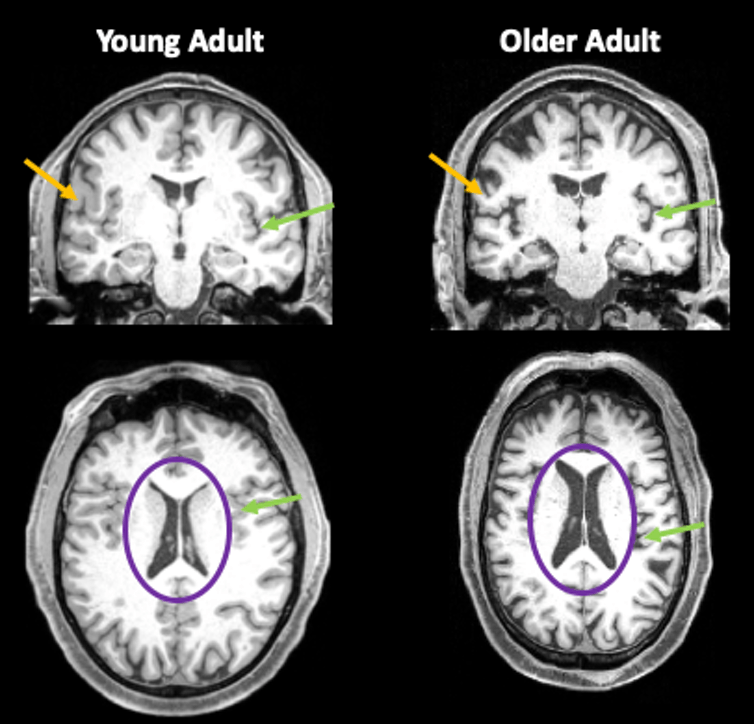
A new study revealed that catching COVID-19 can cause serious changes to the brain. Here’s all about it.
COVID-19 and a shrinking brain

Researchers found major differences in patients’ brains, before and after COVID-19 infection. Magnetic resonance imaging (MRI) scans reveal that the overall size of the brain shrunk following a mild COVID-19 infection. The scans revealed that the brain shrunk in parts related to memory and smell. They are currently trying to understand if these changes are permanent. But, studies also reveal that the stressed brain heals. The study was published in Nature and was led by Prof Gwenaelle Douaud, from the University of Oxford’s Wellcome Centre for Integrative Neuroimaging. “We need to bear in mind that the brain is plastic – by that we mean it can heal itself – so there is a really good chance that, over time, the harmful effects of infection will ease,” explained Prof. Dourad.
“We were looking at essentially mild infection, so to see that we could see some differences in their brain and how much their brain had changed compared with those who had not been infected was quite a surprise,” stated Prof. Douaud. They followed the health status of about 500,000 people for 15 years before the pandemic. Hence, the study is one-of-a-kind with a huge long-term basis for understanding the effect of the covid-19 virus in humans.
What does the research say?
Upon scanning 401 participants, 96 percent of whom had a mild COVID-19, for an average of 4.5 months, they found out that the overall size of the brain had decreased by 0.2 to 2 percent. They also saw a reduction in grey matter in the olfactory (smell) and memory regions. However, it is unclear if the shrinking in these regions is related to the virus attack or death of cells since people with COVID-19 lose their sense of smell. They also took MRI scans of 384 participants without COVID-19. The study helped in understanding that people found the task of performing complex mental tasks difficult after recovering from COVID-19.
“When it was gone, it was like living in a bubble or a vacuum – I found it isolating. What smell training does – particularly if you do it twice a day, regularly, religiously – is it forces you to take the smell, allow it to go back into your nose, and then to think about what it is that you’re smelling,” expressed Paula Totaro. Totaro lost her sense of smell when she caught the virus. However further studies are required to understand if other variants of the virus cause similar damage. The study is based on people infected with the original form and the alpha variant. During these two waves, losing the sense of smell and taste were primary symptoms. But, the Omicron variant witnessed a much lower number of these symptoms.
“It opens up all sorts of questions that other researchers can follow up about the effect of coronavirus infection on cognitive function, on brain fog, and other areas of the brain – and to focus research on how best to mitigate that,” stated Prof. Naomi Allen. Prof. Allen is a chief scientist at the UK Biobank. Additionally, experts believe that since these changes were subtle and not prevailing, their effect on everyday functions is unclear.
